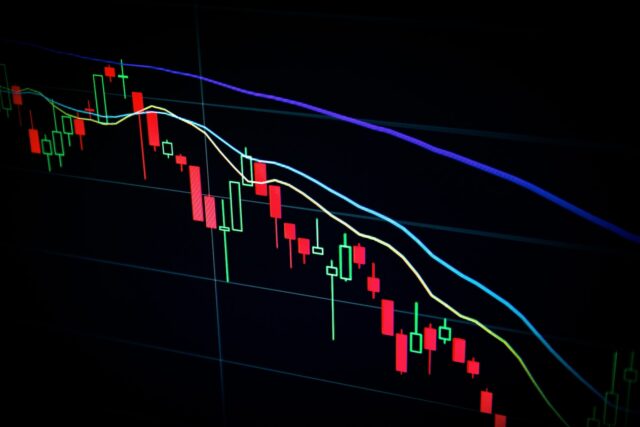In today’s rapidly evolving world, technological advancements have had a profound impact on various industries, and oil trading is no exception. The integration of advanced technologies has revolutionized the way oil is traded, bringing about significant changes in terms of efficiency, transparency, and market dynamics. In this article, we will explore the transformative effects of technology on oil trading and how it has shaped the industry landscape. If anyone wants to trade oil, they can visit https://oil-profits.com/.
Table of Contents
The Role of Automation and Artificial Intelligence
Automation in Trading Processes
One of the key areas where technological advancements have made a significant impact is in the automation of trading processes. With the advent of sophisticated algorithms and high-speed trading platforms, manual trading activities have been largely replaced by automated systems. These systems can execute trades at lightning-fast speeds, analyze vast amounts of data, and make informed decisions based on predefined parameters.
Artificial Intelligence and Machine Learning
Artificial intelligence (AI) and machine learning (ML) algorithms have become integral to the oil trading industry. These technologies enable traders to analyze historical data, identify patterns, and make accurate predictions about market trends. AI-powered trading systems can learn from past market behavior and adjust their strategies accordingly, increasing the probability of making profitable trades.
Enhanced Market Transparency
In the past, oil trading was often characterized by a lack of transparency, with limited access to real-time market information. However, with technological advancements, market transparency has significantly improved, providing traders with valuable insights and reducing information asymmetry.
Online Trading Platforms
The emergence of online trading platforms has democratized access to the oil market. Traders can now participate in real-time trading activities and monitor market conditions from anywhere in the world. These platforms provide a wealth of information, such as live price updates, historical data, and market news, enabling traders to make informed decisions.
Data Analytics and Visualization
The availability of vast amounts of data has necessitated the development of advanced data analytics and visualization tools. These tools enable traders to analyze market trends, identify correlations, and gain actionable insights. By visualizing complex data sets through interactive charts and graphs, traders can quickly spot patterns and make data-driven trading decisions.
Improving Operational Efficiency
Technology has also played a vital role in enhancing operational efficiency within the oil trading industry. From streamlining administrative tasks to optimizing supply chain management, innovative solutions have revolutionized traditional practices.
Streamlined Documentation and Settlement
The digitization of trade documentation and settlement processes has significantly reduced paperwork and administrative burdens. Blockchain technology, for instance, enables secure and transparent record-keeping, eliminating the need for intermediaries and reducing the risk of fraud. Smart contracts further automate the execution of contractual obligations, ensuring timely settlements and minimizing disputes.
Supply Chain Optimization
Technological advancements have enabled oil traders to optimize their supply chain management, resulting in improved logistics and cost efficiencies. Real-time tracking systems, IoT devices, and predictive analytics help monitor inventory levels, manage transportation logistics, and anticipate demand fluctuations. This allows traders to make informed decisions regarding storage, transportation routes, and inventory management, ultimately reducing operational costs.
The Rise of Renewable Energy and its Impact on Oil Trading
As the world increasingly embraces renewable energy sources, the oil trading industry is undergoing a significant transformation. The rapid growth of renewable technologies, such as solar and wind power, has led to a decline in the demand for fossil fuels. Consequently, oil traders are adapting to this new energy landscape and reevaluating their strategies.
Diversification of Energy Portfolios
In response to the rising demand for clean energy, many oil trading firms are diversifying their portfolios to include renewable energy assets. By investing in renewable projects and embracing clean technologies, these companies are positioning themselves for long-term sustainability and capitalizing on the growing market for green energy.
Carbon Trading and Emission Reduction Initiatives
To mitigate the environmental impact of fossil fuels, carbon trading initiatives and emission reduction targets have gained prominence. Oil traders are actively engaging in carbon markets, buying and selling emission allowances to comply with regulatory requirements. Additionally, technological innovations are enabling oil companies to explore carbon capture and storage (CCS) technologies, reducing their carbon footprint and aligning with sustainability goals.
Conclusion
Technological advancements have undeniably transformed the oil trading industry, revolutionizing trading processes, enhancing market transparency, and improving operational efficiency. Automation, artificial intelligence, and data analytics have become integral to the decision-making processes of traders, enabling them to navigate the complex and volatile oil market with greater precision. Moreover, the rise of renewable energy sources has compelled oil traders to adapt and diversify their portfolios, embracing sustainability and positioning themselves for a future driven by clean technologies. As technology continues to evolve, the oil trading industry must remain agile, leveraging innovation to navigate the ever-changing dynamics of the global energy landscape.
